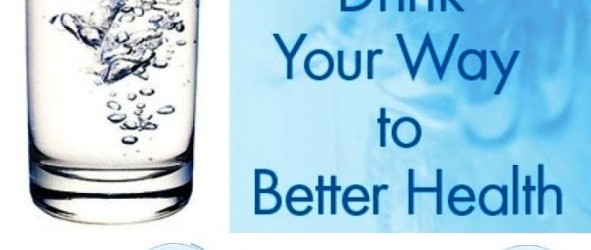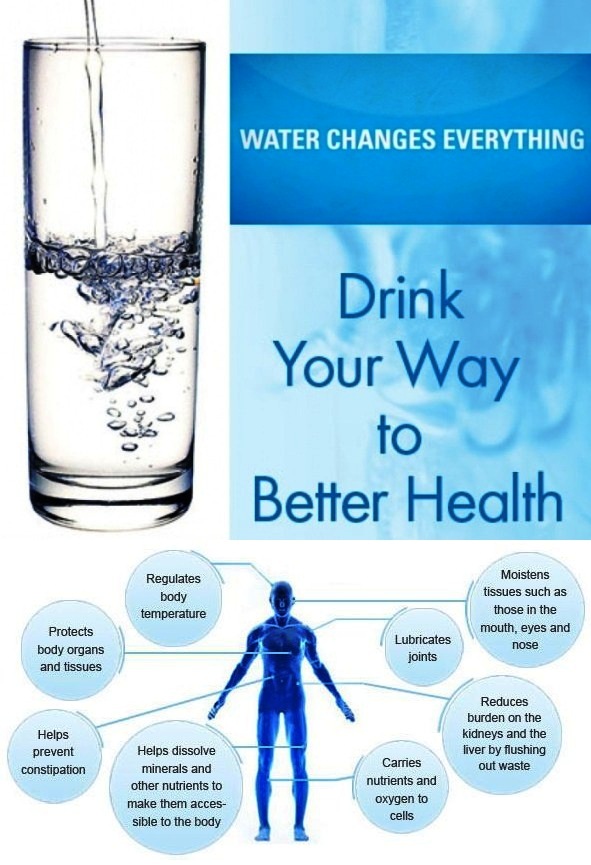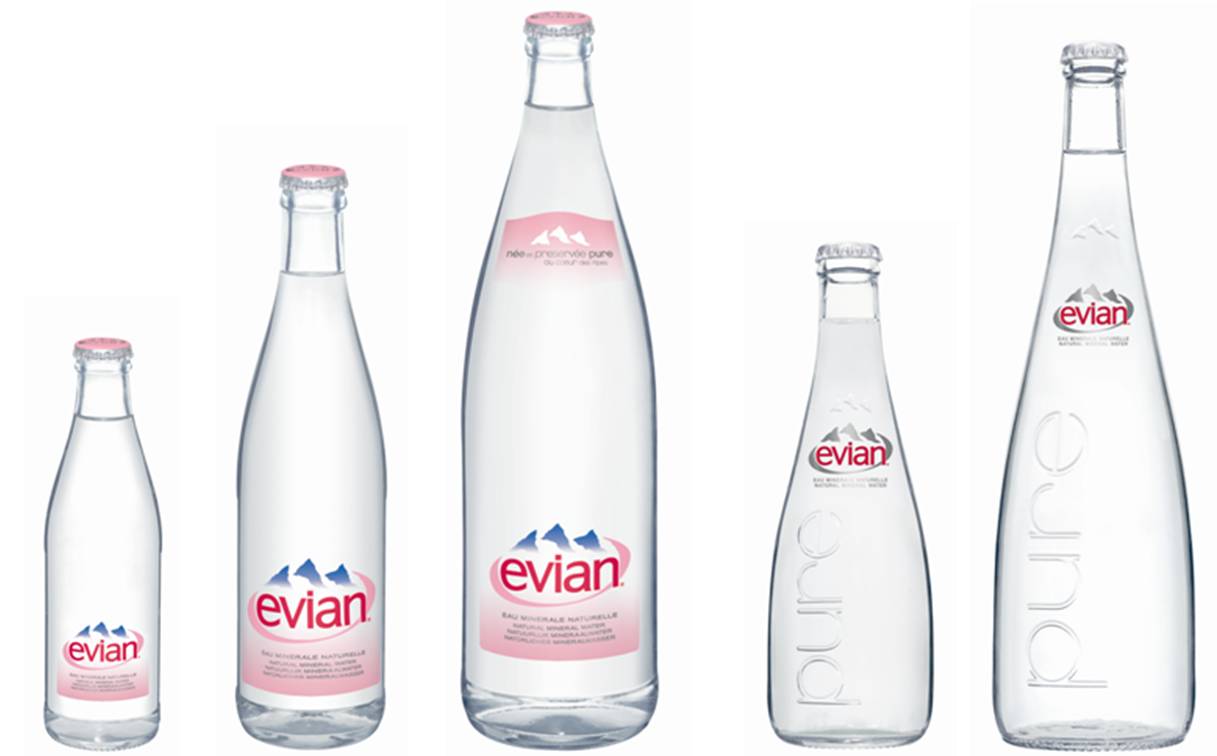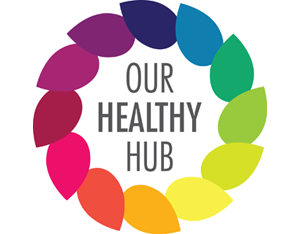Good morning everyone and what a lovely day it is today!
![]() Loading …
Loading …
I’m writing today about something that so many people over look when doing a training plan or diet plan, WATER! I love water and enjoy it immensely, more so than any fizzy pop drink or alcoholic drink. I would recommend alkalized water and I will explain why in a bit.
Overview
“Water aids digestion and blood circulation, regulates body temperature, flushes out toxins and transports nutrients and oxygen. It is in short, the foundation of your sporting performance” (Nigel Mitchell 2012).
Water is clearly taken for granted by everyone in the UK as it’s so readily available without a second thought and when it is used, it’s often wasted on drinking high juices and other products high in sugar. However you may be shocked to learn that most of the bottled water are just as bad for you. I don’t have time to discuss this right now but I will post later on in the week an experiment showing various drinks that are on sale in the UK and what their PH levels are.
I always advocate water and will show you why in this post, especially as summer is upon us and the weather is getting nicer and hotter. I think it’s important to understand the role beverages plays before, during and after exercise.
Interesting fact
We roughly loose 450ml of water a day just by breathing and this increases to about a litre if it’s hot or we have undertook an exercise session. If we do undertake a training session then the total amount of fluid loss can increase to anything up to 4 – 4.5 litres in one day.
A good reliable water requirement calculation is highlighted below and recommend by Paul Chek. For your minimum daily intake you need to base the calculation on our body weight in kg’s, divided by 0.024. This level of water intake works out at 1 litre plus 1 cup (1250ml) for each 30kg of body weight.
Example
An 80kg person would require 3 1/3 litres per day = 80kg divided by 0.024 = 3.3 litres per day.
Water and Exercise
So it’s no surprise that I’m about to tell you that a body that is properly hydrated will allow an increase in “cell communication” which will ultimately result in better health and performance.
So stay away from the so called energy drinks that claim to help you they are simply vampires!
Are you also aware that blood plasma is made up of around 90% water not 90% energy drinks?
Some of you may be aware of the role plasma plays in the body and some of you may not be. So to very briefly highlight this, plasma is made up of water, plasma proteins and cellular nutrients, electrolytes, enzymes, hormones, antibodies and wastes. It’s primary role is to aid transport of the red blood cells (erythrocytes), white blood cells (leukocytes) and platelets (thrombocytes) in and around the body at rest or during exercise. So it’s fair to say pretty important.
I’ve already stated that the weather is getting nicer which means more people start to book holidays and set their goal of getting that perfect “beach body”. So they start to train more, outside or inside and most people will have a little bottle of water to take on a run, bootcamp or weight training session with them. To be frank not drinking during an intense 45min-hour session in hot weather is not in my view wise, however being dehydrated and training is not a big as an issue as the energy drink company’s make out . There is clear research to show that working at different intensity levels and durations will decrease blood plasma volume but as long as you have been drinking when you have been thirsty then your levels of hydration will be fine to train. It is however a problem if you have not been drinking during the day to maintain your hydration levels as your body systems will be fighting for the use of water and if it’s not there it will be getting used up quicker and result in the following:
- 15-20% decrease in 1min bouts of exhaustive exercise
- 7.7% decrease when training at 40% of 1 rep max
- 13.9% decrease when training at 70% of 1 rep max
- Sweating causes additional plasma loss
- Reduced plasma volume will increase blood viscosity which has been linked to impede blood flow which limits oxygen transport
Think of it this way, would you go down a water slide that had little water running down it? what would happen if you did? Very little and the ride wouldn’t be much fun. If the water slide was flowing with water you would slide at a faster pace and enjoy yourself more.
So if in doubt have a bottle of water as you train as it costs peanuts and is often free plus you get all the benefits that are in the picture below!
How can I check I’m getting enough water?
There are three key test that can be done to help you with this;
- Sweat Test: simply weigh yourself unclothed before exercising and then train for an hour. After you have trained weigh yourself unclothed again (if you have drunk any fluids during this hour subtract the weight of what you have drunk). The weight that has been lost is your sweat rate, it is important to remember that this rate can change and you should retest on a regular basis.
- Salt Marks: Checking your clothes for salt marks will allow you to identify if you lose more salt through your sweat.
- Urine Check: Before you do any intense exercise (harder sessions than normal or events) I’d recommend you check your urine as can show you straight away if your hydrated or not. Be aware of the supplements you are taking as these can impact of the color of your urine! (download the 4everfitness urine color chart to help you)
Now you know how to check if your getting enough water how much should you have?
I’d recommend drinking through out the day as thirst is not a reliable indicator of fluid state as once you are thirsty then your levels are already low, then have small slips during physical activity so not to overload the body systems possible every 15mins and I don’t for one second buy in to the claims made by powerade: that are below!
Before Exercise
Starting exercise in a hydrated state will reduce the risks of becoming dehydrated and therefore impairing performance. If you make sure you consume fluids regularly throughout the day, this can make a real difference.
During Exercise
Many factors can influence your ideal fluid intake: your individual sweat rate; duration and intensity of exercise; environmental conditions. Monitor your fluid losses by weighing yourself immediately before and after exercise. If you’re losing 2% of your body mass or more, you’re dehydrated.1
Drink larger volumes of fluid early in exercise and continue to ingest fluid throughout (little and often: ~ 150 ml every 10-15 min).1
After Exercise
After exercise, you need to replace both the fluids and minerals lost in sweat. Water is not the ideal way to hydrate yourself post-exercise, as it stimulates high urine flow and reduces thirst. If you need to restore your fluid balance, a drink containing sodium – the primary mineral lost in sweat – will help the retention of ingested fluids and stimulate your thirst.
Consume 1.5 litres (L) of fluid for each kg of body mass lost as sweat.1 Consume the fluid over time as opposed to all at once.
The next section of information that I’ll present is endorsed by the ACSM for optimal performance benefits:
Before Exercise
- It is recommended that individuals drink about 500ml (about 17 ounces) of fluid about 2 hours before exercise to promote adequate hydration and allow time for excretion of excess ingested water
During Exercise
- Athletes should start drinking early and at regular intervals in an attempt to consume fluids at a rate sufficient to replace all the water lost through sweating (i.e. body weight loss), or consume the maximal amount that can be tolerated
- During exercise lasting less than 1 hour, there is little evidence of physiological or physical performance differences between consuming a carbohydrate-electrolyte drink and plain water
After Exercise
- Drink 600ml of water for every pound of body weight lost through sweat during exercise with a natural recovery aid or suitable protein shake (I’ll jump in and add that in my opinion if you have been training for prolonged periods of time or have undertaken an intense exercise session then it is essential to have some form of carbohydrate intake as this will prevent blood glucose levels falling too low as well as helping maintain the body’s glycogen stores.)
Hyponatremia
Although rare, athletes and normal Joe public can drink too much water and suffer from hyponatremia (water intoxication). Drinking excessive amounts of water can cause a low concentration of sodium in the blood. This can also happen with energy drink and if your not as educated as an elite athlete with a sport scientist and your about to train please don’t think the more lucozade you drink the faster, stronger for longer slogan is true!
The health benefits of staying hydrated
I try drink as much water that is from a bottle source as possible (from glass bottles if I can as the plastic can leak estrogenic chemicals and carcinogens in to the water) and there are various brands out there at various prices. My favourite brand is NutriBalance Alkalized Drinking Water because it helps to prevent Acidosis (too much acid in the body fluids) and blood Ph is in a range of 7.35 to 7.45, making it slightly more alkaline. I know that a lot of leading health experts recommend that alkalizing the body is the first step to maintaining health while Dr. Otto Warburg, winner of the 1931 Nobel Prize for his studies in cell respiration, believed that a person’s level of health and vitality has a direct correlation to the levels of oxygen in his or her blood stream. It was Dr Otto Warburg who noted that alkaline bodies absorb up to 20 times more oxygen than acidic bodies. This is why I used to take alkalising salts with my water twice a day, I have however reduced this since drinking alkalized water.
Alkalized water has been shown to help combat acidification that leads to diabetes, heart diseases, cancer, liver and kidney diseases. You don’t always have to have the alkalized water and other great choices can be good artesian water. “Artesian water rises naturally to the earth’s surface after being processed in and by the earth; this water may have gone through filtration and transformation deep in the earth for millennia before it reaches the surface and is therefore less likely to be contaminated by rain, surface or ground water” Paul Chek. Chek goes on to highlight that choosing waters with a total dissolved solids count of 300 ppm or greater (such as evian, Fiji, or Vittel) are just as good. as they are considered hard waters. “Hard waters were shown by researcher Martin Fox (Healthy Water For A Longer Life) to be less likely to be linked cancer than soft waters” Paul Chek.
The NutriBalance Water originates from a natural mineral water spring in the Bukk Mountains of Northern Hungary. The mineralised water has been naturally preserved in the heart of the Bukk Mountains. On its’ 7500 year voyage through the subterranean chambers and crevices and though layers of mineral rock, this water has been naturally enriched with minerals, especially calcium and magnesium which gives it a uniquely light and refreshing taste. NutriBalance has been able to use the unique qualities that this remarkable mineral water possesses and enhance it with an Ionic Separation technique to produce natural mineral water based alkalized water which is naturally high in alkalizing minerals.
FIT TIP: Did you know virtually all the components of the Metabolic Syndrome of diabetes, high blood pressure, obesity and lipid disorders are associated with low magnesium?
Magnesium is a key mineral for the body as it is involved in the production of adenosine triphosphate (ATP). This is a key foundation of many explosive sport movements and low levels of magnesium have been linked with an increase of blood levels of vitamin c-reactive protein (C-reactive protein or CRP, is an inflammatory biomarker that predicts cardiovascular disease). Without enough magnesium our body cells will struggle to generate energy which for anyone doing exercise is not what we want at all.
For those of you out there who do smaller amounts of exercise and are looking to simply change to a more holistic diet, alkalized water is great for that too. The added benefits of the water being naturally high in alkalizing minerals such as calcium and magnesium will be great for reducing headaches and migraines.
The New York Headache Center have concluded studies showing how magnesium helps to stop blood vessels in the brain constricting as much and allowing the feel good chemical serotonin not to malfunction. Other worth while mentions show that magnesium can potentially help to regulate blood pressure and could also help ward off conditions like stroke and diabetes.
I was using a magnesium spray on the evening four time a week following hard training sessions to replace the magnesium lost through sweat and again have been able to reduced the use of the spray down to twice or even once a week due to the amount of magnesium in the water.
A final benefit of drinking alkalized water is that it will improve gut absorption further to that of normal bottled water and research shows that virtually all nutrients from the diet are absorbed into blood across the mucosa of the small intestine. The intestine will also absorb water as this plays a critical role in the maintenance of body water and acid-base balance.
I know that John “the one” Maguire uses this brand along with a host of other MMA fighters due to the benefits they get in their performance and recovery.
However remember any water will also help to replenish the body before, during and after training meaning that you can get those maximum results in training sessions to further your performance but if you want that extra push I’d recommend Alkalized Drinking Water from a bottled source or from a home plumbed in water filter kit without a shadow of a doubt.
So for all you out there training hard as usual or getting ready for the beach body of a life time ensure you have enough water in your body or ready to put into your body.
Further reading suggestion: EVERYONE should read Your Bodies Many Cries For Water, by F. Batmanghelidj M.D. This is an essential book for understanding how water functions in the human body and how many diseases result from the very common problem of dehydration.
Thanks and have a great day,

















Wow, a very interesting read! I love water too and drink at least 2 litres a day Much better than the fizzy rubbish! Brill article
Much better than the fizzy rubbish! Brill article 
I drink water but not nearly enough. I’ll definitely give alkalized water a try after reading this!
Hi Kat,
Thanks for taking the time to read the article and I agree that water is much more better than that fizzy rubbish!
Deano
Great read! Being a footballer for Guisleley ladies I tend to find myself dehydrated for a good day after a game – definitely going to try the alkaline water!
Hi Caroline,
I’m sure that the Alkaline water will give you some great benefits!
Deano
Well written article and a great read. I often see athletes describing feelings of fatigue and lethargy and they often put it down to their tough training schedule. When asked about their hydration status, it can often reveal that they just haven’t been drinking enough. Although in water, swimming is a strenuous sport that can induce dehydration. I will advise athletes to drink alkaline water and see if that makes a change to their schedule.
Hi Sophie,
Thanks for the feedback and I’m glad it’s something you can relate to in your life and thanks for sharing the information with others!
Deano
Really, really good read – thanks!
Great article Dean. Im going to post a link to it on my facebook page and twitter feed @alfatraining. Great to see the science behind it highlighted so well. Nice catching up with you earlier too!
Hi Andy,
Thanks for the feedback and the support. Be sure to check out my upcoming articles that may help you and your personal training! It’s always nice to catch up and share ideas! The secret to living is to give (Thomas Bates, 2012)
Class read as ever bud. Still wish you were up this way and I’d definitely do some work with you.
Hi Phil,
Thanks for the feedback and I’m sure we will get to work together Thanks for the support!
Thanks for the support!